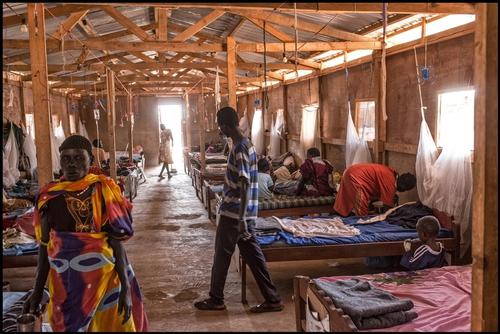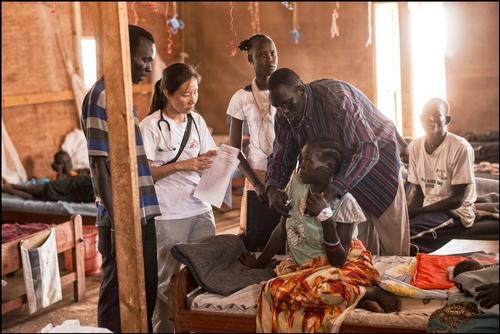- By the end of January, MSF will have closed the doors of its emergency health centre in Melut, South Sudan.
- The intervention in the northeast of the country was a success and helped fill gaps in healthcare in areas affected by fighting at the end of 2013.
- Now that the needs of the community have changed, MSF is looking to support other war-affected communities in the region.
Before 2013, Melut had largely escaped the worst of the violence during South Sudan's struggle for independence. But three years ago, all that changed as the oil rich region saw fighting erupt between government and opposition forces, leading many to flee towards the sanctuary of the camps for the internally displaced persons (IDPs) near Melut. MSF was one of the first international NGOs on the ground to support the population during this critical time.
Now in 2017, there is less fighting in the area around Melut and the needs of the displaced population are different. Of the initial 19,500 internally displaced people who came to the area approximately 5,000 have gradually left. In addition, local medical actors have a greater capacity to deliver the necessary healthcare in the area, leaving MSF free to redeploy to where the need is greatest.
"MSF's role as first responder was crucial at the start of the emergency. We were able to take care of the displaced population as they arrived at the beginning of 2014," says Marta Cazorla, MSF's field coordinator for Melut. "Many arrived exhausted and sick after a long journey, and with very little food. At that time, we were able to provide basic healthcare, vaccinations for all children to avoid disease outbreaks and distribute some basic necessities so they could start their lives again."
One camp resident who later went to work for MSF, Monyjok Dau John Akim, describes the dire situation on the ground: "The camp at the beginning of 2014 was very bad. We had no shelter, just some plastic sheeting to cover us. We had no food and we were using water from the river for everything, even for drinking. That was until MSF started to give us good water."

"After the rush to treat the initial arrivals, we re-focused our efforts and started to offer more specialised services aimed at reducing the high levels of malnutrition and providing care to those suffering from illnesses that are endemic in this swampy area, such as tuberculosis, kala azar, HIV and leprosy," explains Marta Cazorla.
Over the course of the deployment the number of consultations has dropped considerably. In early 2014 when the intervention started, MSF treated about 21,000 outpatients. By 2016, this number has fallen to 5,700 as the medical situation stabilised.
Despite the difficulties of operating in an area prone to conflict, MSF remains committed to the Greater Upper Nile region. In 2016, a purpose-built hospital was completed in the Protection of Civilians site close to Malakal town. MSF is also running a clinic on the west bank of the Nile, just outside the town of Wau Shilluk.
"As an emergency organisation, we are guided by the principle of intervening in a healthcare crisis, whether natural or man-made," explains Marta Cazorla. "In Melut, the needs of the displaced population changed and we have been working to prepare other healthcare actors who are better suited to provide this type of care. MSF is ready to intervene in an emergency should the need arise again."



